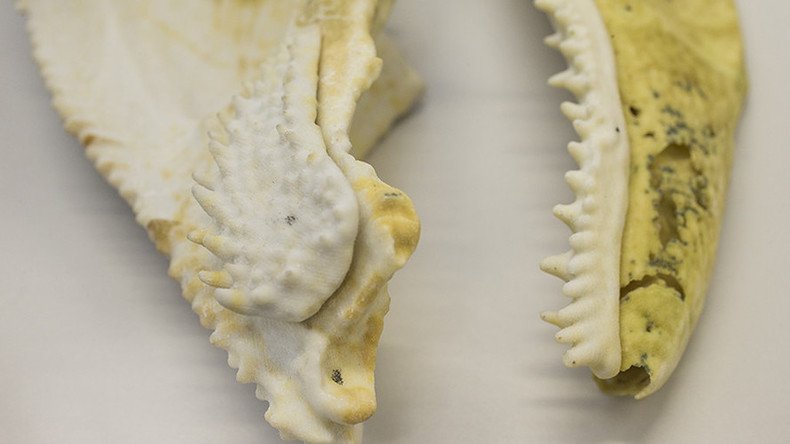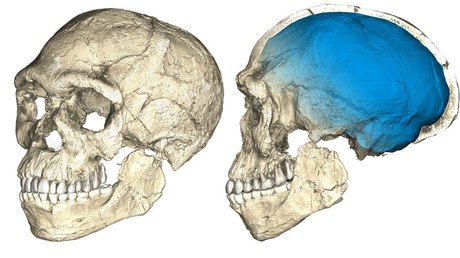400 million-year-old fish linked to human evolution

A 400-million-year-old fish fossil has been found with a jaw structure that is believed to be part of the evolutionary lineage to humans.
The ancient fossil was unearthed during a study of limestones around Lake Burrinjuck, some 50 km northwest of Canberra, Australia.
The region is known for its rare skulls of extinct armoured fish called placoderms, however experts say this example is the best preserved skull and braincase of a placoderm ever found.
"The fossil reveals, in intricate detail, the jaw structure of this ancient fish, which is part of the evolutionary lineage that ultimately led to humans,"said co-researcher Yuzhi Hu, a PhD scholar from the ANU Research School of Earth Sciences.
Hu said the the ancient fish’s jaw joint can still be found “in the human skull, but is now part of the middle ear”
“The carotid arteries in humans and other mammals bring blood through the neck to supply the head with oxygen," she said.
Researchers used high-resolution CT scanning equipment to analyse the skull’s well-preserved internal structure and produced 3D printouts to examine the jaw – a technique never before used for fossil vertebrates.
READ MORE: Homo sapiens not alone, may have evolved with ‘stolen technology’ (VIDEO)
"The amazing preservation of the fossil allows us to trace the grooves carrying the blood supply to the jaws and brain,” she added.
The findings were published in the journal Scientific Reports.














